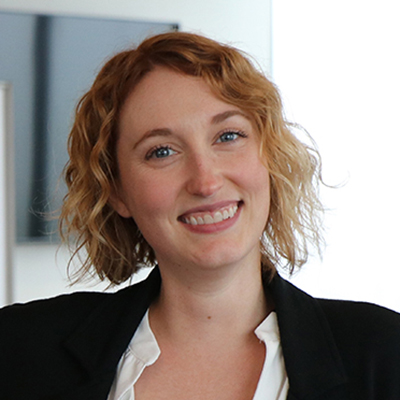The Leading Edge of Health Law
With course offerings that reflect the strength of local health care institutions, BU Law’s health law concentration shines.

“Boston is a great health care city,” notes Professor Kevin Outterson, co-director of BU Law’s Health Law Program. “The concentration of preeminent hospitals, excellent research and educational institutions, and many biotech companies make it a global center for health research and policy.” Not to mention Massachusetts’s universal health care program, passed by Governor Mitt Romney in 2006, acted as a model for President Obama’s Affordable Care Act.
Boston University School of Law’s health law curriculum benefits from the School’s location, offering students a choice from 16 courses and an impressive number of externship opportunities. The program offers a wide range of interdisciplinary courses and seminars, taught by some of the most respected scholars and local practitioners in the fields of law, public health, and management, as well as a number of dual degree options, such as the accelerated JD/MD, the JD/MBA in Law & Health Sector Management, and the JD/MPH in Law & Public Health.
This impressive range of options means the program already meets the health law curriculum guidelines recently introduced by the American Health Lawyers Association, which Professor Outterson played a key role in developing.
The curriculum has boasted a strong course on Health Care Fraud and Abuse for the past six years, taught by Mr. Robert M. Thomas, one of the leading qui tam fraud and abuse attorneys in the country. Thomas was recruited to teach a practical seminar in which students work through real-life fraud and abuse scenarios, exploring how prosecutors, defense attorneys, whistleblowers, and compliance officials inside health care companies approach their work and advise their clients. Thomas’s connections to the industry allow students the opportunity to hear guest lectures from a variety of invaluable sources, including successful whistleblower Elin Baklid-Kunz and her attorney, Marlan Wilbanks,who recently settled False Claims Act accusations with Halifax Hospital.
The Health Care Transactions class, also developed six years ago, brings students through six real transactions and asks them to renegotiate the deals and reverse engineer the transactional process. At the end of the process, students present their findings to and receive feedback from the attorneys who actually negotiated the deals. Professor Outterson pioneered the class using transactions from former partners and colleagues in practice. The class is now taught by senior partners from Ropes & Gray and Verrill Dana.
This fall, BU Law began offering Administrative Rulemaking in Health Care. The course was designed to offer direct experience in health care regulatory practice. Students choose a health law regulation currently open for notice and comment—something from the FDA or about the Affordable Care Act—and analyze that regulation, choose a side, and file a comment letter to the federal government. “The students are practicing law under my supervision,” Outterson says. “They get practical exposure to the realities of administrative law. As far as I know, we’re the only health law program that offers that kind of experience.”
Zachary Rothman (‘15) chose to comment on a rule governing the coverage of preventative services following theBurwell v. Hobby Lobby Stores, Inc. decision. Rothman used corporate and tax law, among other areas, to argue for a narrow reading of the definition of a company eligible to opt out of covering preventative services under the Hobby Lobbyruling.
“Professor Outterson was a great resource for both the health law and corporate law components of my comment,” Rothman notes in a recent blog post about the experience. “He suggested sources to find and read, helped me to refine the thoughts I had on different parts of the rule, and guided me in writing a comment that an agency would not only be forced to respond to, but one they would be interested in reading.”
With so many options, the choices can be dizzying. Outterson recommends choosing health law courses based on interest and career goals.
If a student is interested in biotechnology or life sciences, Outterson might recommend they take Bench-to-Bedside: Translating Biomedical Innovation from the Laboratory to the Marketplace, or Food, Drug and Cosmetic Law. If it’s public health that inspires a student, there are many options with Professors Wendy Mariner and George Annas in partnership with BU’s School of Public Health, including Public alth Law, Health Law and Human Rights, and Health Insurance and the Affordable Care Act. Abigail Moncrieff offers classes that focus on health law jurisprudence, such as Health Care Reform and the Constitution, and Kathryn Zeiler teaches the foundational course in health law, in addition to Economic Analysis of Health Care.
BU Law students can also gain that real-world experience through the Health Law Externship Program, a one-semester experiential program in which students work at a health care organization for credit. Students determine suitable placements with the help of the externship director; recent choices include Boston Medical Center, Health Law Advocates, Vertex Pharmaceuticals, Partners HealthCare and the US Attorney’s Office Fraud Division, among many others.
“Because of the quality of institutions in and around Boston, we have amazing opportunities for students to choose from,” Professor Outterson says. “And we are able to attract the best practitioners from those institutions to share their expertise as professors.”
